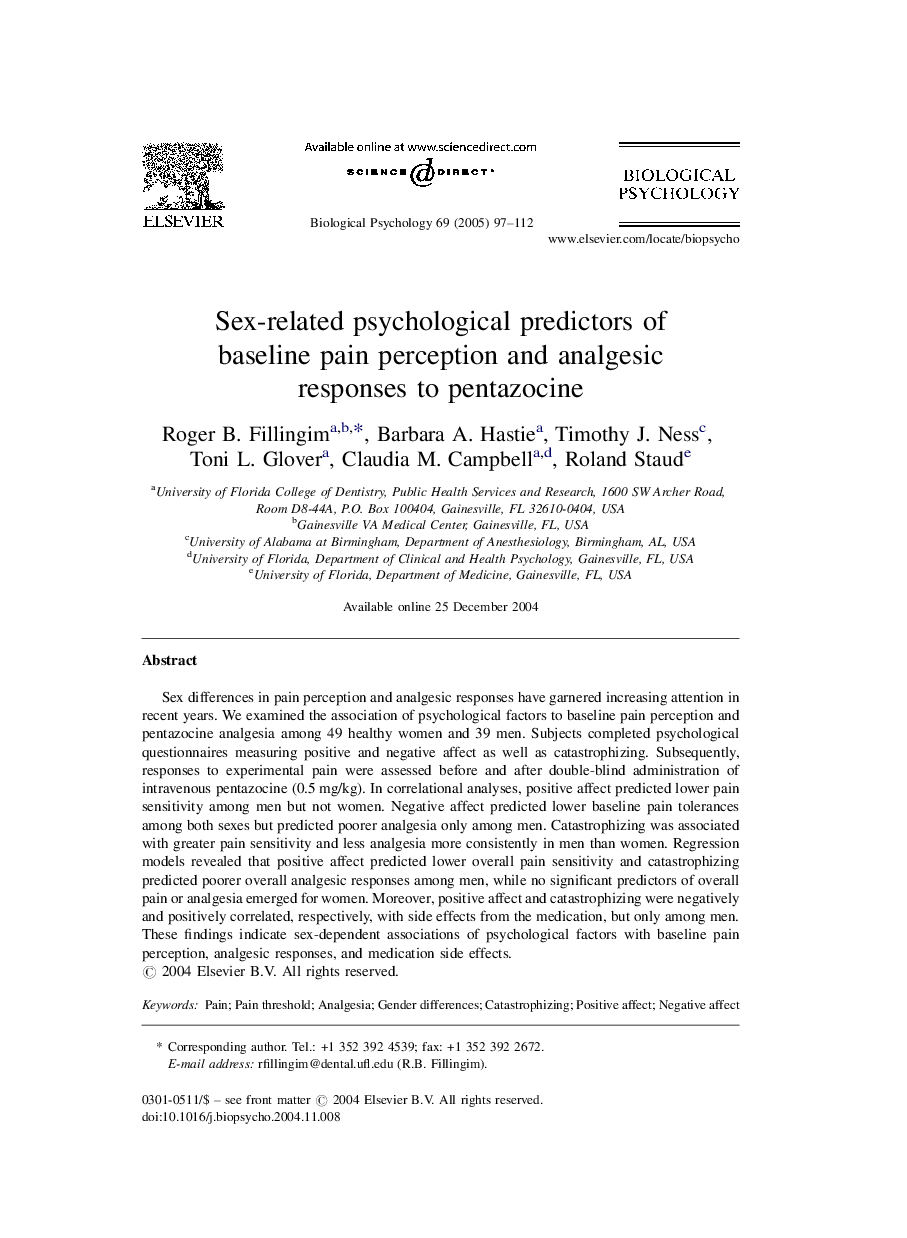| Article ID | Journal | Published Year | Pages | File Type |
|---|---|---|---|---|
| 10454525 | Biological Psychology | 2005 | 16 Pages |
Abstract
Sex differences in pain perception and analgesic responses have garnered increasing attention in recent years. We examined the association of psychological factors to baseline pain perception and pentazocine analgesia among 49 healthy women and 39 men. Subjects completed psychological questionnaires measuring positive and negative affect as well as catastrophizing. Subsequently, responses to experimental pain were assessed before and after double-blind administration of intravenous pentazocine (0.5Â mg/kg). In correlational analyses, positive affect predicted lower pain sensitivity among men but not women. Negative affect predicted lower baseline pain tolerances among both sexes but predicted poorer analgesia only among men. Catastrophizing was associated with greater pain sensitivity and less analgesia more consistently in men than women. Regression models revealed that positive affect predicted lower overall pain sensitivity and catastrophizing predicted poorer overall analgesic responses among men, while no significant predictors of overall pain or analgesia emerged for women. Moreover, positive affect and catastrophizing were negatively and positively correlated, respectively, with side effects from the medication, but only among men. These findings indicate sex-dependent associations of psychological factors with baseline pain perception, analgesic responses, and medication side effects.
Related Topics
Life Sciences
Neuroscience
Behavioral Neuroscience
Authors
Roger B. Fillingim, Barbara A. Hastie, Timothy J. Ness, Toni L. Glover, Claudia M. Campbell, Roland Staud,
